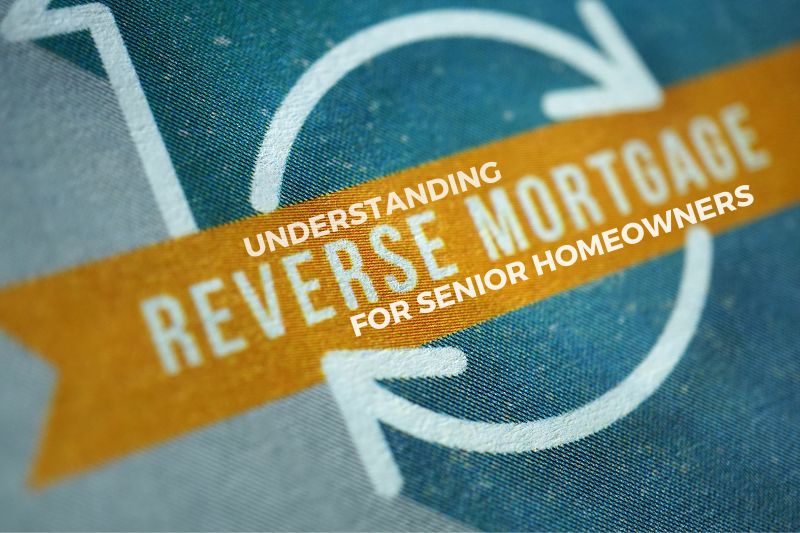As a senior, purchasing or maintaining the perfect home can present unique challenges. One of these is understanding how a reverse mortgage works and if one is best suited for your needs. A reverse mortgage allows seniors over 62 years old to convert their home equity into cash while still retaining title to their property – essentially providing an extra layer of financial security during retirement. In this blog post, we will explore what exactly a reverse mortgage is, how it differs from traditional mortgages, its benefits and drawbacks, who qualifies, and more – so you can make an informed decision about whether it’s right for you!
What is Reverse Mortgages
Reverse mortgages have gained significant popularity in recent years, providing homeowners with a means to utilize the equity accumulated in their homes. Essentially, a reverse mortgage offers homeowners the opportunity to borrow against their home’s value, receiving either a lump sum payment or regular installments to supplement their income. Unlike conventional mortgages, however, borrowers are not obligated to make monthly payments on the loan. Instead, repayment occurs upon the sale or transfer of the property. While reverse mortgages can serve as a valuable tool for seniors seeking to access their home equity, it is crucial to fully grasp the potential drawbacks and pitfalls associated with these loans before determining their suitability for your circumstances.
Advantages of Reverse Mortgages
- Financial Freedom: Reverse mortgages provide seniors with a steady stream of income, enhancing their financial security during retirement.
- Loan Repayment: Unlike traditional loans, borrowers are not required to make monthly payments. The loan is typically repaid upon the sale of the house, or when the homeowner decides to move out or, unfortunately, passes away.
- Ownership: Borrowers retain the title to their home and can live there as long as they wish, provided they maintain the property and stay current on property taxes and insurance.
- Non-recourse Loan: If the loan amount exceeds the home’s value at the time of repayment, the borrower is not responsible for the difference. The federal insurance covers this risk.
- Flexible Fund Usage: The funds acquired through a reverse mortgage can be used for anything, from medical expenses to home improvements or even travel.
Disadvantages of Reverse Mortgages
- High Fees and Closing Costs: Reverse mortgages typically have higher closing costs and fees compared to traditional mortgages. These can include origination fees, mortgage insurance premiums, and servicing fees.
- Decreased Equity: Because a reverse mortgage allows homeowners to tap into their home equity, the remaining equity in the home can decrease over time as interest on the loan accrues.
- Impact on Heirs: Upon the homeowner’s death, the heirs either have to pay off the reverse mortgage or sell the house to cover the loan. This could potentially leave them with little to no inheritance from the home’s equity.
- Risk of Foreclosure: If the homeowners fail to meet the loan’s obligations such as paying property taxes, homeowner insurance, or maintaining the home, they risk foreclosure.
- Limited Income: Reverse mortgages are considered loan advances and thus, may affect eligibility for government assistance programs like Medicaid.
Requirements for a Reverse Mortgage
If you’re a senior who owns a home and is looking for a way to access some of the equity you’ve built up a reverse mortgage may be an appealing option. However, before you can qualify for a reverse mortgage, there are a few requirements you’ll need to meet.
- Age Limit: You must be at least 62 years old. In the case of multiple borrowers, the youngest borrower must be at least 62.
- Primary Residence: The home must be your primary residence. You must live in it for the majority of the year.
- Home Equity: You should own your home outright, or have a low mortgage balance that can be paid off at the closing with proceeds from the reverse loan.
- Financial Resources: To ensure smooth and uninterrupted ownership of the property, it is important to have the necessary financial means to meet ongoing obligations such as property taxes, insurance, Homeowner Association fees, and other related charges.
- Property Type: The property must adhere to FHA standards and flood requirements. It may take the form of a single-family home, a 2-4 unit property with the borrower residing in one unit, an FHA-approved condominium project, or a manufactured home that meets FHA criteria.
- Counseling: Before applying for a reverse mortgage, you must attend a consumer information session with a HUD-approved counselor. This ensures that you fully understand the terms of the loan and your obligations as a borrower.
Reverse mortgages can serve as a valuable financial tool for seniors, offering a means to secure a steady income stream during retirement. However, as with any significant financial decision, it’s essential to understand the benefits, drawbacks, and requirements involved. High fees, decreased equity, potential impact on heirs, risk of foreclosure, and limits on income should all be carefully considered. We hope this post has provided you with valuable insights into the world of reverse mortgages. Stay tuned for our next blog post, where we will delve into the different types of reverse mortgages, exploring their unique features, benefits, and drawbacks to help you navigate the complex world of reverse mortgage products.




